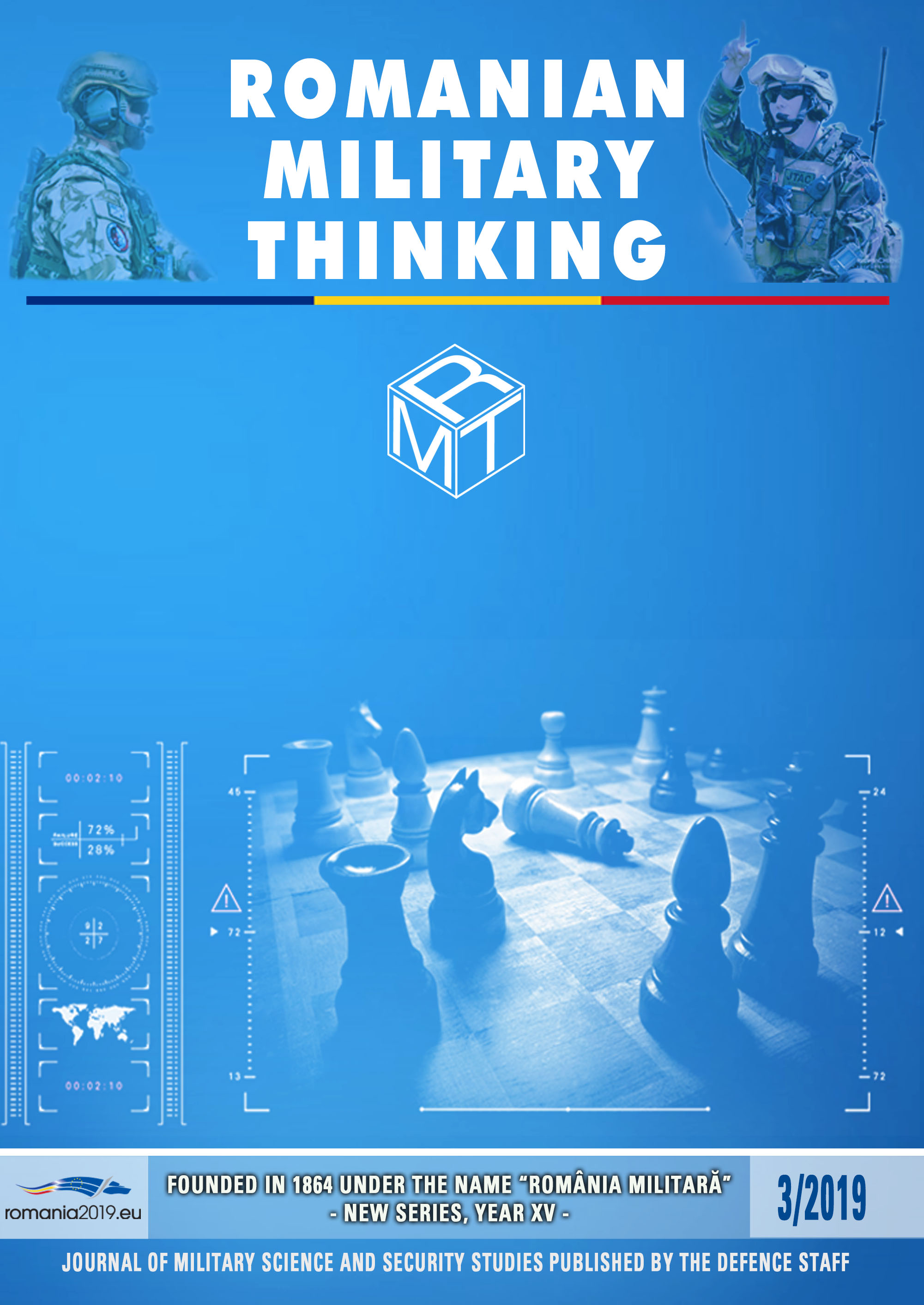Methodological Challenges For Strategy
Methodological Challenges For Strategy
Author(s): Antonia ColibasanuSubject(s): Security and defense, Military policy
Published by: Centrul tehnic-editorial al armatei
Keywords: Cold War; readiness; globalisation; relative peace; military conflict;
Summary/Abstract: The post-Cold War period ended in 2008. Since then, the world started going back to old fears residing in nation states, as trust in globalisation, with all its past promises, diminishes. Old continental powers like Russia, China but alsoI ran or Turkey have started making their voice heard globally, while the USseeks to diminish its role (and expenditure) in global affairs. All this appears to make the question of nation states’ interests more stringent today than several decades ago. In fact, the nation states interests were there while the worldwas thinking about globalisation as a phenomenon to save the world from allnegative effects there are, conflict included. What happens now is that reality became more visible to all: the subject of national interest never went away, asglobalisation never went for a dilution of states.This reality however, because it is now more visible than before – also to theregular citizens, who seek to assure their own security, is driving a reneweddiscussion on strategy. Grand strategy has been determined mostly bygeography. But, considering the socio-economic changes, geography is, in asense, also changing – and for sure operational strategies need to adapt to thechanging environment. Understanding the drivers behind those changes thataffect the citizens daily lives get us to consider how strategy, at operationallevel, is changing – or how it is supposed to change.This article considers the main elements influencing strategic thinkingafter World War II, focusing on the challenges highlighted in such evolution. The paper concludes on the challenges the next stage of strategic planning islikely to face, considering current issues, posed by what ‘is new’ post-2008. More, as strategy depends on analysis, challenges in analytical method point tothose for strategic planning. So, methodologically, this paper takes analysis and modelling as the foundational framework for considering strategic planning. It concludes by pointing out several key tendencies that, based on past lessons, may shape strategic processes and analytical method both, in the future.
Journal: Romanian Military Thinking
- Issue Year: 2019
- Issue No: 3
- Page Range: 10-25
- Page Count: 16
- Language: English

